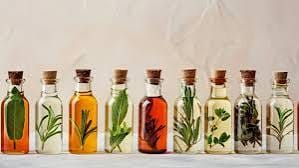Natural Alternatives in Treating Infections: Exploring the Role of Herbal Remedies

As antibiotic resistance rises, many are turning to age-old herbal remedies to support healing and boost immunity.
With the increasing prevalence of antibiotic resistance and growing interest in holistic health, herbal remedies are experiencing a revival. Traditional medicinal herbs, long praised for their antimicrobial and anti-inflammatory properties, are being studied and used as complementary treatments for infections. From respiratory ailments to skin conditions, nature offers a range of plant-based solutions to support healing.
This report explores some of the most effective herbal remedies for infections and highlights their benefits, applications, and precautions.
Ancient Wisdom for Modern Infections
Herbal remedies have been used for centuries to treat infections and boost the body’s natural defenses. While not a substitute for antibiotics in severe cases, these natural treatments offer a complementary approach that may reduce inflammation, alleviate symptoms, and support immune function.
The Power Players: Top Herbal Remedies for Infections
1. Garlic (Allium sativum)
Known as nature’s antibiotic, garlic boasts powerful antibacterial, antifungal, and antiviral properties. Its active compound, allicin, fights pathogens effectively.
• How to Use: Eating 1–2 raw garlic cloves daily can help combat infections. Garlic oil can also be applied to minor wounds.
2. Turmeric (Curcuma longa)
Famous for its vibrant yellow hue, turmeric contains curcumin, a potent anti-inflammatory and antimicrobial agent.
• How to Use: Turmeric can be consumed in warm drinks or applied topically in a paste to support healing.
3. Echinacea (Echinacea purpurea)
Often used to shorten colds, echinacea stimulates the immune system and fights bacterial and viral infections.
• How to Use: Drink as a tea or take as a tincture for respiratory and throat infections.
4. Manuka Honey
This New Zealand treasure is renowned for its antibacterial properties, attributed to its high levels of methylglyoxal (MGO).
• How to Use: Apply directly to wounds to promote healing or take a spoonful to soothe sore throats and boost immunity.
5. Oregano (Origanum vulgare)
Oregano oil, rich in carvacrol, is a powerful antimicrobial that combats bacteria, fungi, and viruses.
• How to Use: Diluted oregano oil can be used for skin infections, while capsules are effective for systemic infections.
6. Elderberry (Sambucus nigra)
Elderberry is celebrated for its immune-boosting and antiviral properties, especially for upper respiratory infections.
• How to Use: Elderberry syrup or tea can alleviate cold and flu symptoms.
7. Thyme (Thymus vulgaris)
Rich in thymol, thyme is a natural antimicrobial often used for respiratory infections.
• How to Use: Thyme tea helps clear mucus, while diluted thyme oil can be used as a disinfectant.
8. Neem (Azadirachta indica)
Widely used in traditional Indian medicine, neem fights bacterial and fungal infections effectively.
• How to Use: Neem oil or paste can be applied to skin infections, and neem tea can help detoxify the body.
Respiratory Infections: Herbal Solutions
Respiratory infections, including pneumonia, bronchitis, and sinusitis, are common and often require medical intervention. Herbs like ginger, thyme, and echinacea can complement medical treatments by reducing inflammation and aiding mucus clearance. Ginger tea with honey, for instance, is a time-tested remedy for sore throats and congestion.
Fertile Ground for New Research
While these remedies are steeped in tradition, modern research is increasingly validating their efficacy. For example, studies have demonstrated garlic’s ability to combat antibiotic-resistant bacteria, and turmeric’s curcumin has been shown to inhibit the growth of certain pathogens. However, large-scale clinical trials are still needed to fully integrate these herbs into mainstream medical protocols.
The Precautions of Going Natural
Herbal remedies, while natural, are not without risks. It is crucial to consult a healthcare professional before use, especially for pregnant or breastfeeding individuals, or those taking prescription medications. Some herbs can interact with medications or exacerbate existing conditions.
A Blend of Nature and Medicine
Herbal remedies offer an invaluable resource in the fight against infections, particularly as antibiotic resistance becomes a global concern. While they should not replace conventional treatments for severe conditions, they provide a sustainable, complementary approach to health and healing.
For those seeking to enhance their natural defenses, these remedies serve as a reminder of the healing power of nature, offering hope in both ancient wisdom and modern science.
Sources:
• Traditional medicine practices
• Published research on herbal pharmacology
• Recommendations from integrative health experts
Note: Always consult with a healthcare provider before starting any herbal treatment.